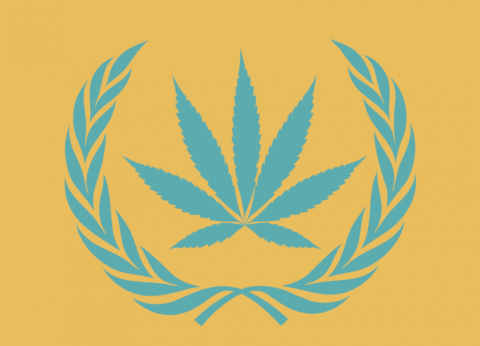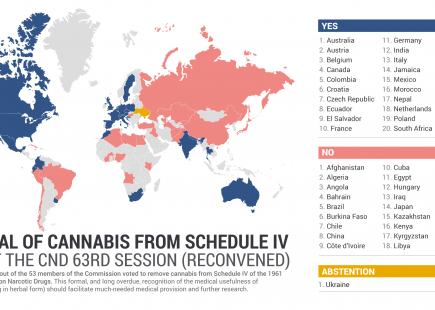UN green lights medicinal cannabis but fails to challenge colonial legacy of its prohibition
Vienna, 2 December 2020
- In a historic vote, the United Nations (UN) has finally recognised the medicinal value of cannabis.
- A group of prominent drug policy organisations has welcomed the move, but also expressed disappointment that this reform does not go far enough, as cannabis remains categorised internationally alongside drugs like heroin and cocaine.
- The review was revisiting cannabis scheduling decisions made in the 1950s, which were driven by prevailing racist and colonial attitudes, and not based on scientific evaluations. This has remained unchallenged.


International Drug Policy Consortium
After two years of fractious debate, today in Vienna the UN Commission on Narcotic Drugs (CND) voted to remove cannabis from Schedule IV of the 1961 Single Convention on Narcotic Drugs, which is reserved for controlled substances with limited or no therapeutic benefit. By doing so, the UN finally acknowledges the therapeutic value of cannabis, thus strengthening the international imperative for ensuring access to cannabis-based medicines. This is welcome news for the millions of people who use cannabis for therapeutic purposes and reflects the reality of the growing market for cannabis-based medicinal products.
The Transnational Institute delivered a statement after CND Member States voted on all the WHO's recommendations. A longer version of the statement can be found here.
- Martin Jelsma | Director of the Drugs and Democracy Programme, Transnational Institute | mjelsma@tni.org
- Ann Fordham | Executive Director, International Drug Policy Consortium | afordham@idpc.net
- Zara Snapp | Director, Instituto RIA | zsnapp@gmail.com
- Steve Rolles | Senior Policy Analyst, Transform Drug Policy Foundation | steve@transformdrugs.org
- John Walsh | Director for Drug Policy , Washington Office on Latin America | jwalsh@wola.org